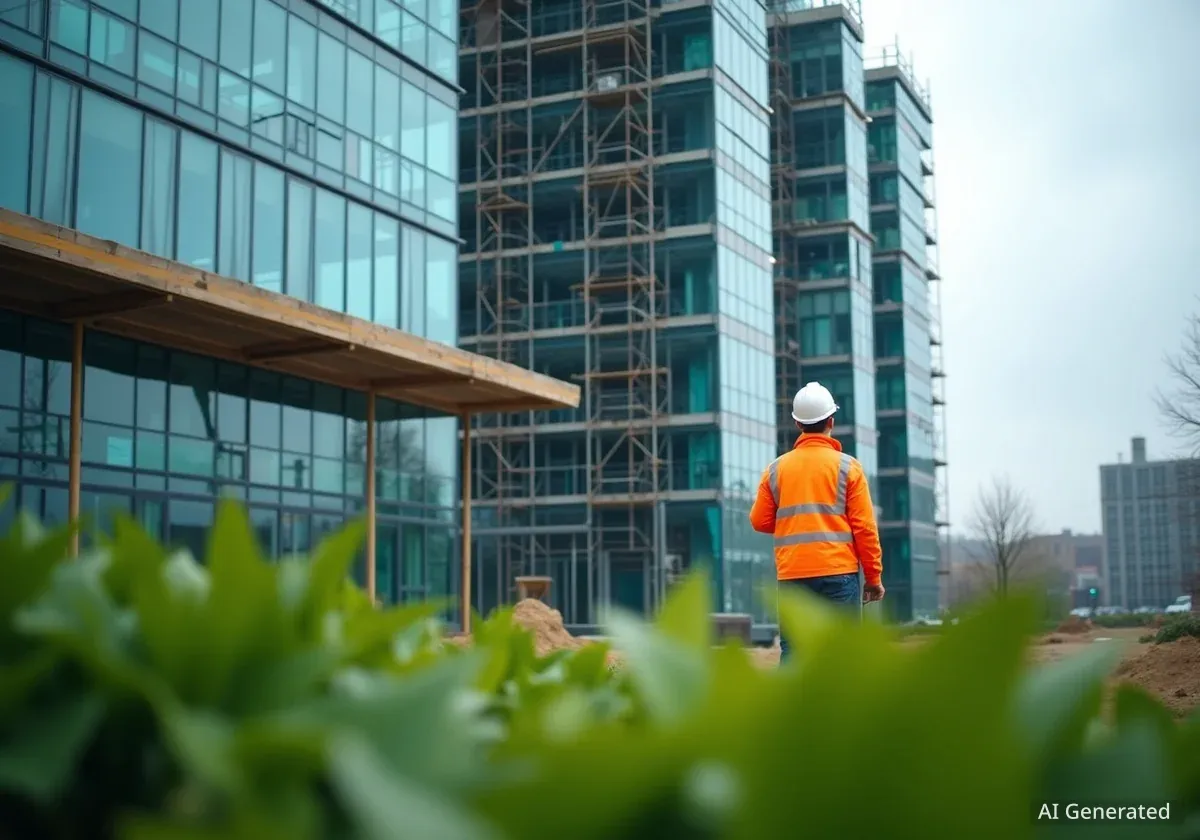Businesses across the Liverpool City Region are facing significant economic challenges, with rising taxation and persistent inflation emerging as their primary concerns, according to the latest Quarterly Economic Survey (QES). The survey, the largest of its kind in the UK, reveals a climate of uncertainty that is impacting investment, profitability, and recruitment efforts.
Key Takeaways
- Taxation is the top concern for 62% of local businesses, a significant increase over the last quarter.
- Over half (54%) of firms are worried about inflation, while 45% plan to raise their prices soon.
- Recruitment remains difficult, with 70% of businesses trying to hire facing challenges, especially for skilled roles.
- Despite concerns, 81% of businesses expect their turnover to either improve or remain stable over the next year.
Economic Pressures Mounting on Local Firms
The latest data from the QES paints a challenging picture for the local economy. A substantial 62% of businesses surveyed identified taxation as a greater concern now than it was just three months ago. This is closely followed by inflation, which was highlighted as a major worry by 54% of respondents.
These pressures are directly influencing pricing decisions. Nearly half of the businesses in the region (45%) anticipate they will need to increase their prices in the near future. In contrast, less than 2% expect to lower them.
Cost Drivers for Liverpool Businesses
The survey identified the main factors forcing companies to consider price hikes:
- Employment Costs: 90% of businesses cited this as a major pressure.
- Utility Bills: 59% are concerned about the cost of energy.
- Raw Materials: 41% pointed to the rising price of essential materials.
This environment of rising costs is creating a difficult balancing act for business owners, who must manage increasing overheads while trying to remain competitive.
A Mixed Outlook on Future Performance
Despite the immediate headwinds, there is a degree of cautious optimism regarding future sales. A significant majority, 81% of businesses, expect their turnover to either improve or stay the same over the next 12 months. However, this confidence does not extend to profitability.
Nearly a third of companies (31%) predict that their profits will actually decrease over the same period. This suggests that while sales may hold steady, rising costs are eating into margins. This is further supported by the finding that 52% of businesses report operating below full capacity, indicating underutilised resources and potential for greater output if conditions were more favourable.
The Domestic vs. Export Divide
The survey revealed a stark contrast between domestic and international trade. While less than a quarter of businesses saw a drop in UK sales, 42% reported a fall in export sales, and 46% noted a decline in advance export orders. This highlights the specific challenges facing companies that trade internationally.
Financial health is also under strain. Almost half of the businesses surveyed (46%) said their cashflow had decreased, which directly impacts their ability to invest in the future. The report notes that plans for investment in technology, plant, and machinery have been the most affected.
Investment Paralysis and Calls for Government Action
Paul Cherpeau, Chief Executive of Liverpool Chamber, commented on the findings, describing a sense of stagnation among businesses. He noted that many firms feel trapped in a "state of paralysis," hesitant to make significant growth or investment decisions.
“This survey underlines the frustrating reality that many businesses find themselves in a state of paralysis, unable or unwilling to move ahead with growth or investment decisions, understandably concerned about the impact of UK government policy around business taxation and the National Minimum Wage, as well as global factors such as tariffs and conflict.”
Cherpeau warned that this uncertainty contributes to stagnant GDP growth and lower productivity. He called on the government to provide clarity and support.
“We urge the government to reassure businesses by bringing forward a sustainable and deliverable long-term plan for economic growth that doesn’t involve any further tax raids on business owners and employers,” he added.
Recruitment Challenges Persist
The labour market remains a significant hurdle for many companies. Nearly two-thirds of the businesses surveyed had attempted to recruit staff recently. Of those, 80% were seeking to fill full-time positions.
However, 70% of those attempting to hire encountered difficulties. The biggest challenge was finding skilled or manual workers, which accounted for 55% of the recruitment problems. This skills gap continues to hamper business operations and growth potential.
Despite these difficulties, most businesses are trying to maintain their current workforce size. 60% do not expect to make changes to their headcount, while only 13% anticipate a reduction, reflecting a reluctance to make long-term staffing cuts amid the uncertainty.
Voices from the Business Community
The survey also included direct feedback from business owners, which provides a ground-level view of the current climate. One owner expressed the severe pressure they are under.
“We are having lots of sleepless nights," the owner stated. "A combination of increased costs and overheads, and clients cutting non-essential aspects of planned projects... means we will end this year with less turnover than last and in deficit.”
Another respondent, whose work relies on publicly funded projects, voiced concerns about future government policy. “The outlook remains consistent, but we are still trading on Conservative government-funded work in the public sector. Currently Labour government policy suggests that once this runs out, no real opportunities are expected to come to fruition.”
However, the outlook was not universally negative. One business noted a recent upturn in activity. “A very slow start to the year has suddenly turned into a very busy Autumn, with a lot of new opportunities coming along at the same time... the real test will be whether the growth is sustained next year and beyond.”
The survey data was collected by the Chambers of Commerce in Liverpool, Knowsley, and Halton, providing a comprehensive snapshot of the economic sentiment across the city region.





